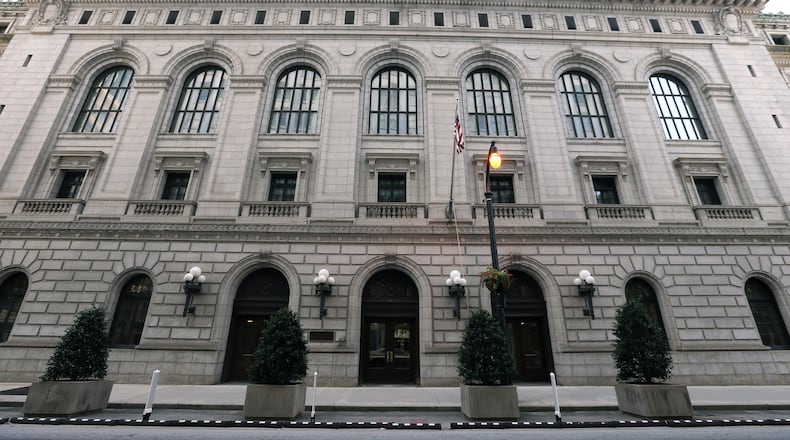President Donald Trump has appointed yet another judge to the influential federal appeals court in Atlanta.
On Wednesday, Trump nominated U.S. District Judge Andrew Brasher of Montgomery to the 11th U.S. Circuit Court of Appeals. Brasher is the former Alabama solicitor general and was only confirmed to the federal court bench a little more than five months ago.
So far during his presidency, Trump has nominated six judges to 11th Circuit — half of the 12-member court.
Three of those nominees now sit on the court. The other three are still awaiting Senate confirmation — Brasher and Florida Supreme Court Justices Barbara Lagoa and Robert Luck.
Brasher would replace Ed Carnes, the 11th Circuit's chief judge and one of its intellectual leaders. Known for his well-written opinions sprinkled with wit and irony, Carnes recently told the White House that he will become a senior judge no sooner than June 30 and will stay on for longer if his successor is not confirmed by then. Senior judge status is a form of semi-retirement for U.S federal court judges.
Carnes will be succeeded as chief judge by Judge Bill Pryor, the former Alabama attorney general. It just so happens that Brasher, 38, once served as one of Pryor’s law clerks.
Carl Tobias, a University of Richmond law professor who tracks judicial nominations, said it’s unusual for a president to elevate someone to the appellate court bench so rapidly after being confirmed as a district judge.
“This shows that Trump and the GOP Senate majority want to ram through as many circuit judges as possible before the 2020 elections,” Tobias said.
The 11th Circuit has jurisdiction over cases from three states — Georgia, Alabama and Florida. It decides appeals from all criminal cases in those states’ federal courts and hears cases involving the death penalty, abortion, voting rights, workplace discrimination and the separation of church and state.
About the Author
The Latest
Featured




